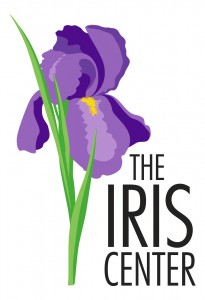Are there modules available for faculty use that are based on learning science research and, therefore, really do increase student learning? If so, how can faculty use them?
Page 9: IRIS Overview
What?
 Funded by the U.S. Department of Education’s Office of Special Education Programs (OSEP), the IRIS Center is headquartered at Vanderbilt University in Nashville, Tennessee, and Claremont Graduate University in Claremont, California. Our mission is to create and infuse resources about evidence-based practices into preservice preparation and professional development programs. To facilitate this process, IRIS disseminates and offers trainings on those resources.
Funded by the U.S. Department of Education’s Office of Special Education Programs (OSEP), the IRIS Center is headquartered at Vanderbilt University in Nashville, Tennessee, and Claremont Graduate University in Claremont, California. Our mission is to create and infuse resources about evidence-based practices into preservice preparation and professional development programs. To facilitate this process, IRIS disseminates and offers trainings on those resources.
Developed in collaboration with nationally recognized researchers and education experts, IRIS resources are designed to address instructional and behavioral issues of great importance to today’s educators, issues like Response-to-Intervention (RTI), classroom behavior management, and early childhood special education. IRIS resources are used in college instruction, professional development activities, and independent learning opportunities for practicing educators.
Why?
The Individuals with Disabilities Education Act (IDEA) offers opportunities for students with disabilities to experience school success. These opportunities include greater access to the general education curriculum so that students with disabilities may achieve at high academic levels, so that they may receive appropriate educational services in inclusive settings, and so that they may be included in appropriate statewide and district-wide assessments. The IRIS Center promotes research-validated practices about exceptional learners, the coordination of school improvement efforts, and closer interaction among professionals from different disciplines. The use of IRIS interactive training materials should result in better-prepared school personnel so that special education becomes a service for children rather than a place where they are sent for their education.
Who?
The IRIS Center serves college faculty engaged in the preservice preparation of the next generation of educators, professional development providers who work with practicing educators, and educators taking part in independent learning activities.
How?
The process of collecting and utilizing input helps ensure that the IRIS Center provides high-quality products and services. The input phase of the product-development process involves the collection of data from six major sources: IRIS user data, textbook and syllabi analyses, national standards, consumer surveys, federal policies, and stakeholder focus groups. The purpose of the input phase is to inform IRIS staff about the gaps in preparation programs for preservice personnel and in professional development. These resource materials are designed for use as supplements to college classes (e.g., homework assignments), inclass activities, or professional development training materials. All IRIS materials are available to faculty at no cost through the IRIS website (iris.peabody.vanderbilt.edu).
When?
The original project, the IRIS Center for Faculty Enhancement (IRIS-I), was initiated on August 1, 2001, as a cooperative agreement with the U.S. Department of Education for a five-year period. In 2006, the IRIS Center for Training Enhancements (IRIS-II) was funded for an additional six years to continue this highly successful work and to expand its scope of work to include professional development. In 2012, the IRIS Center was funded again to include a focus on all children, ages birth through 21, especially those with disabilities.